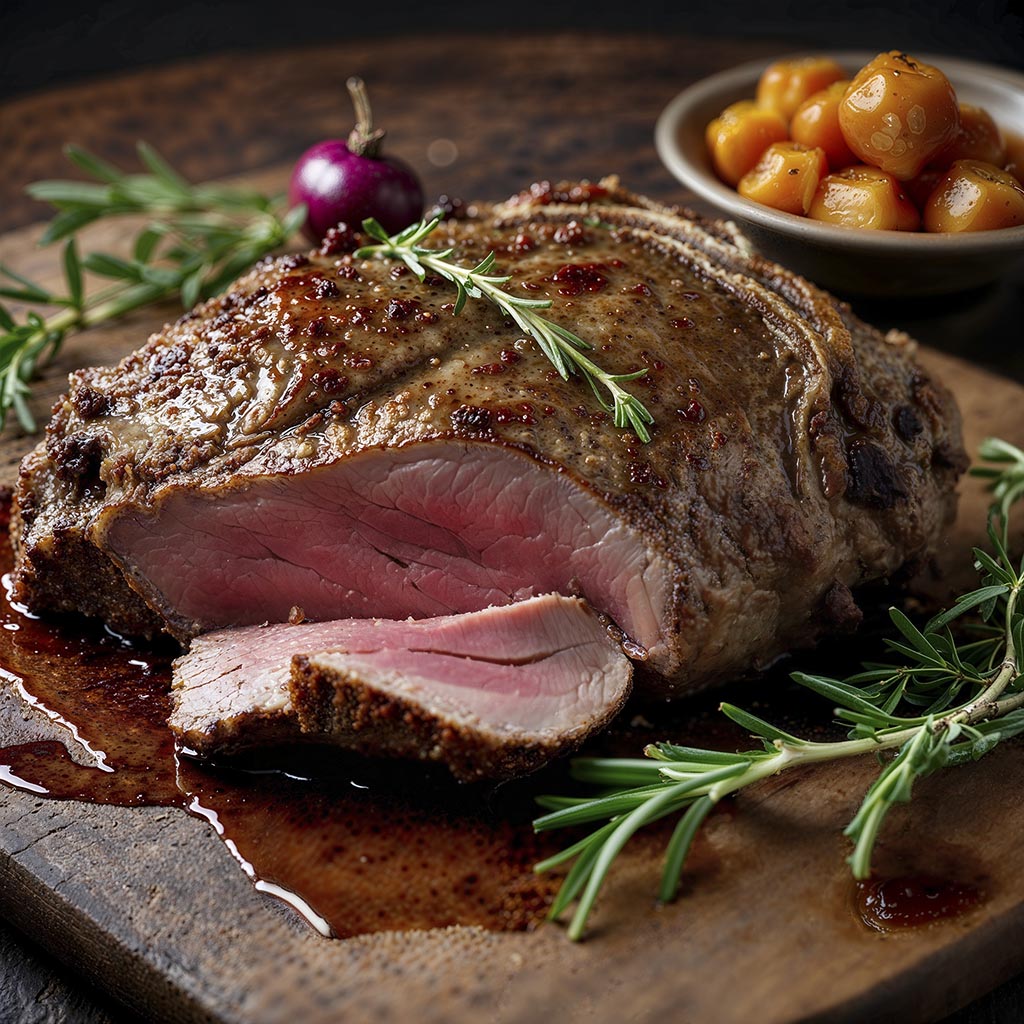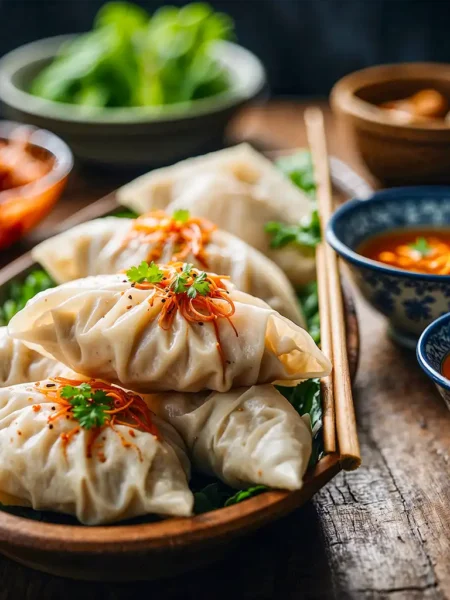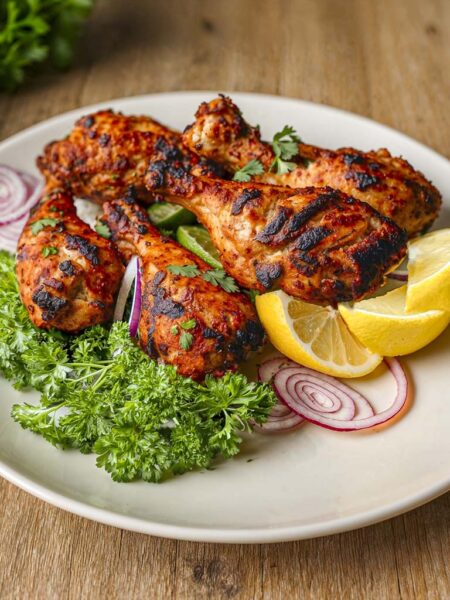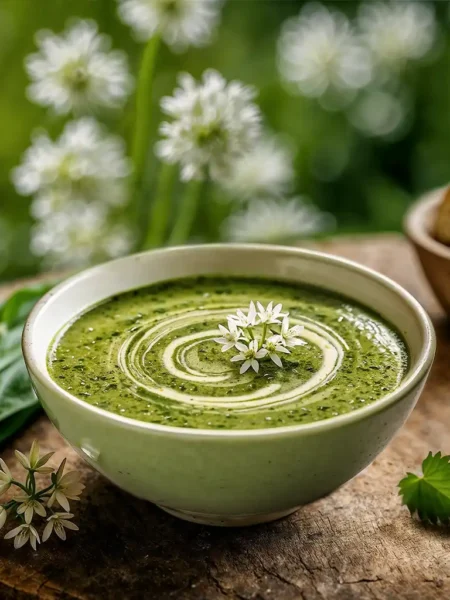Leg of lamb is one of the most treasured cuts of meat, known for its rich flavor and tender texture. While it might seem intimidating at first, roasting lamb is easier than you think – it just requires understanding a few key principles. The meat has a natural sweetness that sets it apart from other meats, especially in younger lamb. The key to success lies in proper temperature control and timing, which allows you to achieve your preferred level of doneness – from pink and juicy rare to fall-apart tender when slow-roasted. Whether you choose bone-in for extra flavor or boneless for easier serving, this guide will walk you through every step of creating the perfect roasted leg of lamb.
- Cooking time varies based on your preference:
- Medium-rare (pink center): about 20 minutes per pound at 180°C/355°F
- Fall-apart tender: about 30-35 minutes per pound at 180°C/355°F
Always use a meat thermometer for perfect results, and remember to let the meat rest for at least 30 minutes before carving.
For a detailed breakdown of temperatures, cooking methods, and expert tips, check out our complete Leg of Lamb Roasting Guide.
Roast Leg of Lamb
This roasted leg of lamb recipe combines traditional techniques with simple seasonings to create a showstopping main dish. The meat is seasoned with fresh rosemary and garlic, then roasted to perfection, resulting in a tender, aromatic, and flavorful centerpiece. Perfect for special occasions like Easter dinner, Sunday roasts, or any gathering where you want to impress your guests with a classic, elegant dish.
Ingredients
Instructions
Preparation
-
Remove your lamb leg from the refrigerator 1-2 hours before cooking. This step is crucial for even cooking - cold meat straight from the fridge will cook unevenly and take longer to reach the desired internal temperature. However, don't leave it out for more than 2 hours for food safety reasons.
-
Pat the meat thoroughly dry with paper towels. This helps achieve better browning during roasting.
-
Using a sharp knife, make 6-7 evenly spaced incisions across the surface of the lamb, each about 2.5cm deep. These pockets will hold the garlic and rosemary, allowing their flavors to penetrate deep into the meat.
-
Prepare your aromatics by halving the garlic cloves and selecting small sprigs of rosemary that will fit into the incisions.
-
Insert a piece of garlic and a small sprig of rosemary into each incision, pushing them in well so they don't fall out during cooking.
-
Coat the entire leg evenly with olive oil, massaging it into the meat. This helps with heat transfer and browning.
-
Season generously with sea salt on all sides, ensuring even coverage. The salt will help enhance the meat's natural flavors.
Roasting
-
Preheat your oven thoroughly to 220°C (425°F). Position a rack in the middle of the oven.
-
Place the lamb on a wire rack set inside a roasting tray. The rack ensures even heat circulation and allows the fat to drip away. Place the tray underneath to catch drippings which can be used for gravy.
-
Start with a high-temperature roast: cook for 10 minutes at 220°C (425°F). This initial blast of heat helps develop a flavorful crust.
-
Reduce the oven temperature to 180°C (355°F) and continue roasting according to your desired doneness:
- For medium-rare (pink center): about 20 minutes per pound (0,45kg)
- For fall-apart tender: about 30-35 minutes per pound (0,45kg)
-
Use a meat thermometer to check the internal temperature:
- Rare: 52°C (125°F)
- Medium-rare: 55-57°C (130-135°F)
- Medium: 60°C (140°F)
- Well-done: 68-74°C (155-165°F)
- Fall-apart tender: 80-90°C (175-195°F)
-
Once your desired temperature is reached, remove from the oven and transfer to a warm platter.
-
Cover loosely with foil and let rest for at least 30 minutes. This crucial step allows the juices to redistribute throughout the meat.
-
Carve against the grain and serve with your chosen accompaniments.
Nutrition Facts
Servings 6
Serving Size 250g
- Amount Per Serving
- Calories 500kcal
- % Daily Value *
- Total Fat 32g50%
- Saturated Fat 14g70%
- Sodium 800mg34%
- Potassium 550mg16%
- Total Carbohydrate 2g1%
- Dietary Fiber 0.8g4%
- Protein 40g80%
- Iron 5 mg
- Riboflavin 0.5 mg
- Niacin 10 mg
- Vitamin B6 0.7 mg
- Vitamin B12 5 mcg
- Phosphorus 400 mg
- Zinc 8 mg
- Selenium 50 mcg
- Chloride 95 mg
* Disclaimer: The provided nutritional values are estimates only. Actual calorie and nutrient content can vary significantly depending on the specific products used, exact quantities, and preparation method. Always consult with a healthcare provider for personalized dietary advice.
Notes
- Choosing your lamb: Look for meat with a bright pink or red color and white (not yellow) fat. Younger lamb will have a milder flavor.
- Temperature control is key: Always use a reliable meat thermometer for perfect results.
- The resting period is non-negotiable: This step ensures juicy, tender meat.
- Leftovers can be stored in the refrigerator for up to 4 days or frozen for up to 2 months.
- Save the bones for making stock - they'll add incredible flavor to soups and sauces.
- For extra flavor, consider marinating the lamb overnight with herbs and garlic.





